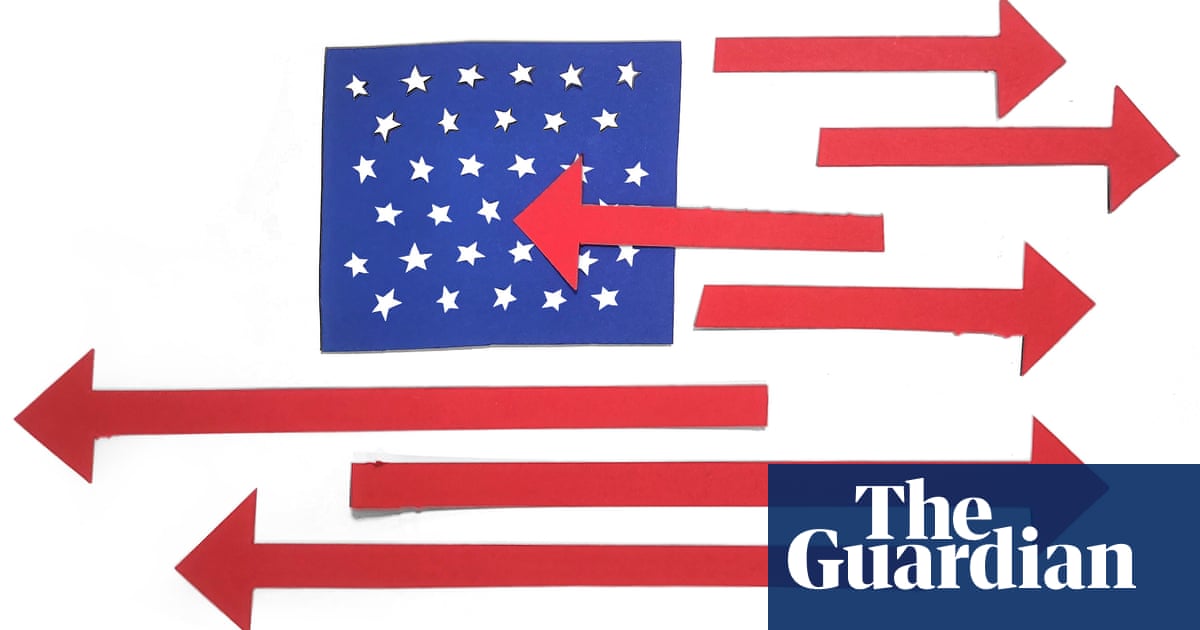At the same time as Australians arecutting back on plans to visit the USunder Donald Trump, a new type of investment strategy designed to avoid America is fast gaining popularity.
The “sell America trade”, an expression that barely existed before Trump spooked markets by unveiling his new tariff regime late on 2 April, is now a common expression among traders and appears regularly in investment notes to explain the day’s price movements.
Given what happens in the US affects global markets, the emerging strategy could have a significant impact on Australia.
For decades, the US has been viewed as a reliable place to invest, be it through shares, currency or bonds.
That view soured when the tariff program wasrevealed, and then partly revoked,triggering a tumultuous period that pushed markets around in extreme bouts of fear and relief.
Investors are still unsure if some exemptions, such as those applied to smartphones, laptops and other electronic products from import tariffs on China,will prove short-lived, amplifying uncertainty.
The volatility has convinced many investors to sell an assortment of US assets and direct their money to more stable markets elsewhere, in a strategy now known as the “sell America trade”.
Sign up for the Afternoon Update: Election 2025 email newsletter
Peter Dragicevich, a Sydney-based currency strategist at Corpay, said investor confidence in the US has been shaken.
“It’s not a complete loss of confidence, but it has been shaken by the chopping and changing in terms of US policy,” said Dragicevich.
“There’s more economic risk in the US now and policy uncertainty from the Trump administration, so that’s going to dampen that demand for capital to find its way into the US markets.”
There was an unusual moment at the height of trade tensions when US government bonds, traditionally seen as one of the world’s safest financial assets,were sold off.
The US dollar, another safe haven, also lost value, as did American equities.
This meant two safe-haven assets and one risk asset – shares – all fell at the same time, rather than moving in different directions as they typically do.
The message was clear; investors were fleeing America.
“This odd combination of market moves points to a widespread rejection of US assets,” says Ryan Swift, a US bond strategist at BCA Research.
Swift says the trade war has damaged consumer and business confidence enough to “push the US economy into recession within the next few months”.
Omkar Joshi, chief investment officer at Sydney-headquartered Opal Capital Management, says the US is “not a market that feels very stable”.
“There’s a bit of a ‘sell America’ shift evolving,” Joshi says.
Trump’s subsequent backdown on many of the supersized tariffs offered some relief to markets, although enormous volatility remains.
Against this backdrop, the Australian dollar has surged in recent days against a weak greenback, recovering all of its recent losses.
Other currencies, such as the euro and the pound, have strongly outperformed the US dollar over the past month, in what could be interpreted as a vote of no confidence in the American economy.
Such currency movements could persist should the “sell America trade” gain momentum.
For all the worry, the US still entices plenty of investment, and calmer policy settings may eventually ease some of the anxiety.
This would make the events of April a blip as opposed to a long-term shift in the way global investors direct their money.
However, the huge shocks caused by the tariff policy may have already caused some industries to rethink their trading relationships with the US, creating a long-term drag on US wealth.
Mathew Cherian, managing director at Melbourne-based health technology company MasterCare, says Australia should make its healthcare system less reliant on overseas products and technology in response to volatile trade relations.
“The recent US tariffs highlight just how vulnerable our reliance on overseas imports has made us,” he says.
Rather than rely on the US, entire sectors may decide to develop their own capabilities or find other nations to buy products from, both of which would make America less wealthy.
There’s also been an early decoupling of the US and Australian markets, according to economists, as a result of Trump’s tariffs.
While Wall Street would still set the tone for global share markets, including in Australia, they could end up with looser performance ties if the gap between the respective economies widens.
The chief economist at AMP, Shane Oliver, says Australia may avoid a recession even if the US falls into one.
“The US is most at risk because it has threatened virtually all of its trade whereas other countries are only seeing their trade with the US impacted,” Oliver says.
